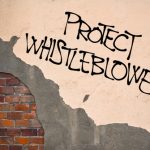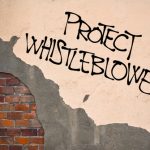Politician’s Office Will Not Be Prosecuted

The Australian Federal Police (AFP) has announced that no charges will be brought for the leaking of confidential information from Liberal Senator Michaelia Cash’s office which led to raids on the headquarters of the Australian Workers’ Union headquarters.
“The AFP can confirm the CDPP has advised they will not be proceeding with a prosecution as there are no reasonable prospects of conviction,” the AFP said in a statement. “The AFP considers this investigation finalised.”
What the law says
The law contains many provisions which prohibit individuals from disclosing information that might reveal abuse, crime and corruption in government departments and agencies.
For example, section 42 of the Australian Border Force Act 1995 (Cth) makes it a crime punishable by up to two years in prison for an “entrusted person” to disclose information obtained in the course of his or her employment, which may be used to prohibit medical practitioners from – for instance – disclosing information about the atrocious conditions in off-shore immigration detention camps.
Section 70 of the Crimes Act 1914 (Cth) prescribes a maximum penalty of two years’ imprisonment for the communication or disclosure of information obtained in the capacity of a Commonwealth officer without approval. The legislation gives a broad definition of Commonwealth officer, which includes employees of federal agencies and departments.
The section has been used for years to silence, investigate and prosecute a range of government workers who have attempted to reveal abuses and corrupt practices within federally controlled agencies.
For example, it was used 2014 by then Immigration Minister Scott Morrison to expel 10 members of the charity ‘Save the Children’ from Nauru Detention Centre for speaking out about the sexual abuse of children in that facility.
The section was also used to silence and investigate former detention centre psychiatrist Dr Peter Young after he was openly critical of the “appalling conditions” faced by detainees.
The section has further been used to successfully prosecute:
- an officer of the Australian Customs Service for providing reports to journalists about security issues at Sydney Airport;
- an officer of the Office of Indigenous Policy Coordination for disclosing information relating to Commonwealth Indigenous policy to a member of the Mutitjulu community in the Northern Territory;
- an officer of the Australian Taxation Office for providing documents containing summaries of taxpayers and tax agents to a private business associate; and
- an officer of Centrelink for disclosing personal details of Centrelink customers to a firm which offered to pay for information leading to the whereabouts of various people.
The use of the section has always been notoriously selective, with federal government agencies typically pushing for prosecutions in cases where unlawfully leaked information is damaging rather than where it but promotes its interests.
Leak from Liberal Senator’s Office
The office of Liberal Senator Michaela Cash leaked protected information to journalists to the effect that the Australian Federal Police was about to conduct raids on the Sydney and Melbourne offices of the Australian Workers Union, with a view to gathering evidence regarding whether the union had made unauthorised donations to activist group GetUp in 2005, when Opposition Leader Bill Shorten had been the union’s leader.
The unlawful leak was clearly intended to garner publicity which was adverse to Mr Shorten’s and thereby adversely affect his popularity.
The information resulted in media swarming the offices and being present when the raids were executed on 25 October 2017.
Ms Cash initially told Senate estimates that her office was not responsible for the leaks, but was forced to correct her evidence when media advisor David De Garis admitted the conduct.
The AFP conducted an investigation and referred the matter to the Commonwealth Office of Public Prosecutions (CDPP), which has now decided not to prosecute the matter.
The decision is curious given that section 70 clearly makes it a crime for Commonwealth employees to communication information regarding a raid without appropriate authorisation.
There is no evidence that any authorisation to leak the information of the raid to the media was sought, let alone approved.
The decision also means that the truth of what actually occurred is unlikely to ever come to light, and questions continue regarding whether the senator was aware of the decision to leak the information and, if not, how this could be allowed to occur while she was the head of the office.
Labor’s employment spokesman, Brendan O’Connor, said while he respects the independence of CDPP, he is disappointed no charges are being laid in circumstances where a Commonwealth staffer has confessed to an unlawful leak.
“Senator Cash confirmed to the Senate that a staffer confessed to a crime,” Mr O’Connor Tweeted.
Union action
The AWU commenced proceedings in the Federal Court which has challenged the legality of the raid.
The challenge alleges that Ms Cash improperly used the AFP and Registered Organisations Commission (ROC) to pursue her political opponents.
The AFP and ROC have responded by refusing to release correspondence in relation to the raids, claiming public interest immunity.
In December 2018, Justice Anthony upheld the AFP’s public interest immunity claim, finding that although the documents relating to the raid may help the AWU establish whether the investigation was initiated for an “improper purpose”, releasing the documents may prejudice the ongoing investigation.
AWU national secretary Daniel Walton described the decision not to prosecute as “mixed news”, saying that it could at least now press for documents which had been protected on the basis of the ongoing investigation.
The Federal Court case is set down for hearing on 11 February 2019.
The AWU has subpoenaed Ms Cash to give evidence.







